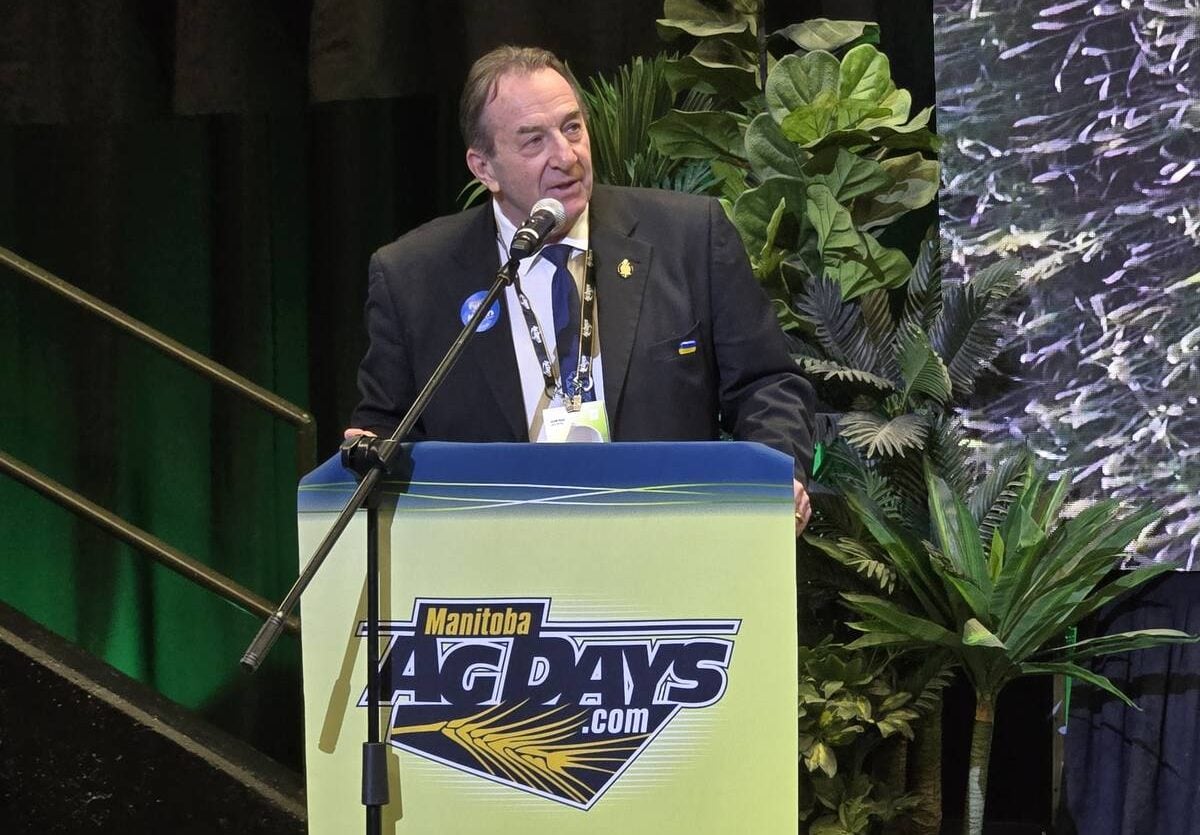It’s going to be awhile before the next ship is loaded at the northern Manitoba Port of Churchill.
About two years, according to Sheldon Affleck, chief executive officer of the Arctic Gateway Group (AGG).
The group consists of 29 Indigenous and a dozen non-Indigenous communities that own and operate the 627-mile rail line from The Pas to Churchill, as well as the grain terminal at Canada’s only deepwater Arctic port.
The current AGG morphed out of the consortium that was headed by the Regina-based AGT Food and Ingredients., which acquired the line and the port from Omnitrax when rail service to Churchill was cut for three years due to a number of unrepaired washouts.
Read Also

Manitoba crop insurance expands wildlife coverage, offers pilot programs
New crop insurance coverage is available to Manitoba farmers.
Affleck explained AGG decided in April to proceed with an extensive rehabilitation of the rail line that includes laying a honeycomb-type form to aid in stabilizing the track bed that sits on top of muskeg. Construction only began in August after the federal government announced it was providing $40 million for the project, with the work focusing largely on the stretch between Gillam and Churchill.
Affleck said passenger and freight service have continued, albeit with a number of delays due to the construction.
“It would have been very difficult to run grain trains at the same time,” he said, stressing the need for the work.
“If you don’t bite the bullet and do your permanent solutions to the track, it’s like a potholey road that’s always under construction and you never get anything productive done. You are damaging what you are doing while you are doing inefficiently,” he added.
Besides the rail line, Affleck said work continued on the roof of the grain terminal, to prevent water from leaking in. Otherwise he said the 92-year-old structure is very sound.
Also, he explained that with grain shipments drastically curtailed, it would have been too costly to get the terminal up and running for a season until the work is completed. To do so entails getting personnel in place from the Canadian Food Inspection Agency (CFIA) and the Canadian Grain Commission (CGC), plus stevedores, as well as acquiring the needed certifications.
“You need a fair bit of shipping to make it worthwhile to open,” Affleck noted.
On top of that is the drought that deeply cut in to Prairie crops. That huge drop in production this year has already meant the port won’t have a grain shipping season in 2022. Affleck said there won’t be any leftover grain from 2021 to transport to Churchill.
That, he explained, has continued to be one of the drawbacks to Churchill, despite it being closer to a number of markets including those in Europe.
“The growing season on the Prairies doesn’t coincide with the shipping season in Churchill very well,” Affleck stated, noting there is at best a two-week period to get a current year’s grain to the port – provided everything is already lined up between the seller and the buyer, all with no major glitches.
Otherwise grain is sent north after harvest and before the shipping season begins.
Besides exporting grain through Churchill, Affleck spoke of doing the same with something called CanaPux, which was developed several years ago by Canadian National Railway.
“(This is) a heavy oil combined with a small amount of recycled plastic… that turns into a granular product that is not oily and floats on water,” he said.
The port, he continued, is already capable of handling CanaPux and the rehabilitation of the rail line will provide Churchill the opportunity to ship the product.
Quorum Corporation, which tracks grain movement by rail in Canada, said only 700 tonnes of grain are presently in the Churchill terminal. This time last year there were 26,100 tonnes. Also, data from the Canadian Grain Commission showed 95,400 tonnes of grain were sent to the port in 2020-21.
The Hudson Bay Route Association website shows that 137,000 tonnes of grain were shipped out of Churchill in 2019. Previously in 2010 almost 659,000 tonnes of grain sailed out of the northern port, but that dwindled to about 185,000 tonnes by 2015 following the sale of the Canadian Wheat Board (CWB).


















